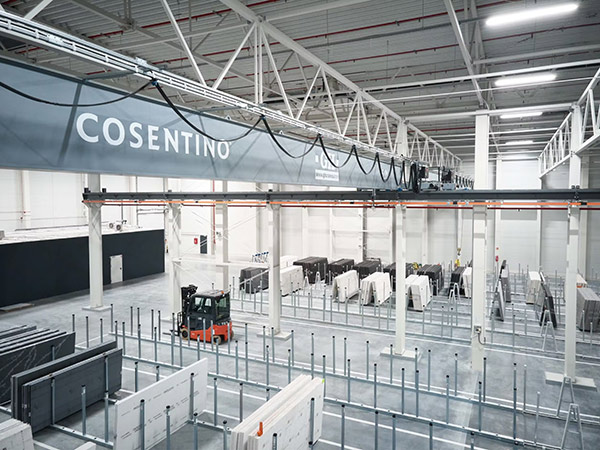Cosentino has spoken out on the court judgment that saw it ordered to pay €1.1 million to five stonemasons working at a factory dedicated to the preparation and installation of Silestone worktops.
The court ruling concerned events that occurred 15 years ago and in a statement Cosentino said it “agreed to reach a settlement that implies the company’s assumption of liability solely for providing insufficient technical information about Silestone to a specific third-party fabrication shop and exclusively affecting five employees of this fabricator”.
The technical information referred to concerns the risk of the disease silicosis to workers exposed to crystalline silica. Cosentino’s statement points out that “15 years ago applicable legislation was imprecise and the science of occupational risk prevention had not yet evolved to today’s standards”.
The company added that “the main parties of this particular case had already withdrawn their claims via settlement with the legal representatives of the affected parties due to the insolvency of the fabricator for which they worked”.
According to Cosentino, the judgment also claims that in 1999 the fabrication shop concerned had a risk assessment that concluded “existence of hygienic risk to the health of workers due to the presence of free silica and breathable dust in the environment”.
Cosentino added that the fabrication shop manager did not take any corrective action or request additional information about the composition of the product. According to reports in Andalusian newspaper Diario de Sevilla, the president of the Vigo marble factory, Granitel, in which the five workers carried out their trade, “has accepted a sentence of one year and three months for not adopting control measures despite knowing the composition of the Silestone sheets supplied by the Cosentino Group”.
Cosentino makes it clear in its statement that it “has complied with the applicable regulations over the years, upholding its responsibility as a manufacturer and supplier. The company is deeply committed to the research, development, and education of best practices and procedures to ensure the well being of its employees and customers working with the product”.
It also added in its statement that significant R&D investments have reduced the silica content in its worktops.
It said: “Cosentino is the first manufacturer in the sector to have made significant R&D investments year after year — most notably with the launch of the pioneering HybriQ technology, patented by Cosentino and developed for the manufacturing of the new Silestone, which reduces the presence of silica (quartz) in its composition in two main levels: Silestone-50, which indicates a silica content below that percentage, and Silestone-10, below 10%. Currently, all Cosentino production of this material is below 50% silica content.”
Cosentino also pointed out that the court judgment only applied to the five workers at Granitel. It further stated: “News articles that refer to other admissions made by Cosentino are completely false, including that Cosentino concealed information about the health and safety measures required to fabricate Silestone or that the handling of Silestone has caused the majority of cases of silicosis that have affected 1,856 workers”.
Both Diario de Sevilla and Reuters also reported that, as part of the Galicia court’s ruling, Cosentino owner Francisco Martinez accepted a six-month suspended prison sentence for five counts of serious injury.
Cosentino’s statement concluded: “This court ruling is limited to a specific case and does not affect the management of the company, which will continue to act in a fully committed and transparent manner with its employees, customers and other stakeholders.”
